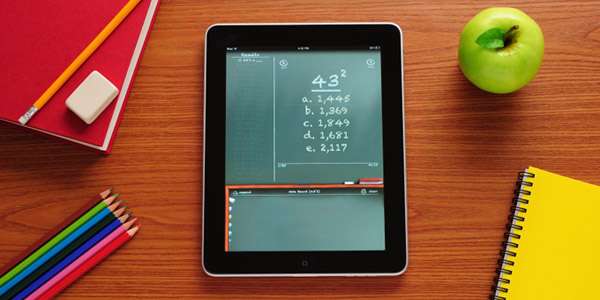Regionalschoul-Uewersauer
 | Scipads2015-05-13Kuckt eech hei de Video vum "SciPads-Projet" un deen seit e puer Joer an eiser Schoul zesummen mat Uni.lu leeft. SciPads Youtube sciPADS: Creative inquiry through iPads and Cloud Learning in elementary scienceThe SCIPADS project expands the research on “doing science as discourse-in-interaction” (Codi-Scile-A) to the group of 8 to 12 year old students (n=300) within classes (n=19) of the Luxembourg fundamental school and the European school 2. Drawing on findings from the Codi-Scile-A project, the research interweaves the developed research framework with new dimensions such as technology-enhanced inquiry , cloud learning, creative re-organisation of given information or participatory data capture. The project aims to investigate the context specific ways in which 8 to 12 year old students make sense of science phenomena through the convergence of material, digital and semiotic tools (written & oral) in multilingual contexts. This study tracks the students’ science learning activities during a complete two-year learning cycle and enlarges the existing Codi-Scile-A database with reliable data about their specific ways of “doing science”. The ICT focus scrutinizes the beneficial effects of portable computing devices, cloud-based services and knowledge sharing platforms on progressive forms of inquiry and computer-supported collaborative knowledge construction. Further, it investigates to what extent technologies are stimulating children to be creative and transform the culturally pre-given information into new knowledge artefacts. These creative processes take place through apparent (“at hand”) and emergent (“developed”) discourse-in-interaction practices, features and formats with regard to the students’ repertoires from outside and inside school. Regarding our prior research findings, the multilingual, -media and -modal quality of these processes are of specific interest in terms of a) “doing science” and b) learning as such. For basic and applied research purposes, it is relevant how and to what extent idiosyncratic ways of thinking and acting come into being, are dialogically taken into account by other participants and might be tackled for further improvement through teachers or peers. The context-sensitive methodological framework provides ecologically valid insights into the culturally mediated fundaments of scientific reasoning, technology-enhanced information structuring in discourse-in-interaction. The research is emphasizing their micro-development and their enactment within multilingual learning contexts at a sensitive age. Based on prior Codi-Scile-A findings, this study involves children as co-researchers. They collect data through mobile devices about the science phenomena under scrutiny, but also about their own inquiry-based learning efforts. The project is particularly interested in the multimodal ways students enact their ideas, thoughts and experiences about science phenomena into being and strives to gather their emic views on the creative inquiries. These data inform the research team about their epistemic and methodological beliefs as regards scientific reasoning at this age (21st century skills).
For more information, please contact Charles Max. |